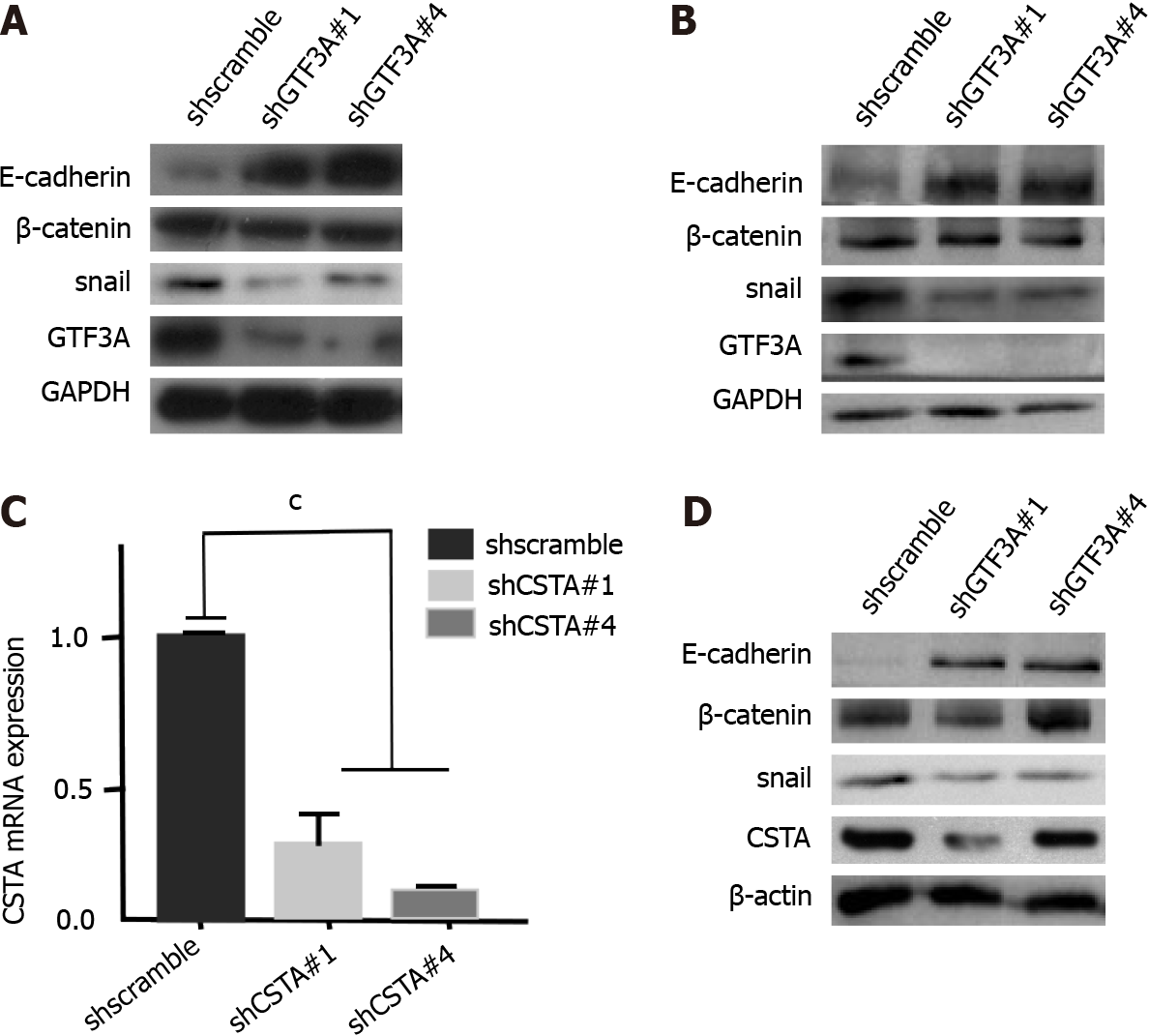Copyright
©The Author(s) 2022.
World J Gastrointest Oncol. Oct 15, 2022; 14(10): 1918-1932
Published online Oct 15, 2022. doi: 10.4251/wjgo.v14.i10.1918
Published online Oct 15, 2022. doi: 10.4251/wjgo.v14.i10.1918
Figure 5 Transcriptional factor III A mediates epithelial-mesenchymal transition of colorectal cancer cells by regulating cystatin A.
A: Epithelial-mesenchymal transition (EMT) biomarkers E-cadherin, beta-catenin, and snail in short hairpin of transcriptional factor III A (shGTF3A) #1 and #4-HCT116 cells and the control group were detected by Western blot; B: EMT biomarkers were tested in shGTF3A#1 and #4-SW480 cells and the control group; C: mRNA expression of cystatin A (Csta) gene in shCSTA#1,2-SW480 and the control group was detected using real-time quantitative polymerase chain reaction; D: EMT biomarkers were analyzed in Csta-knockdown SW480 and the control cells. Cystatin A mRNA expression is expressed as the mean ± SEM of three independent experiments. There were statistically significant differences between shCSTA#1,2-SW480 and the control group. cP < 0.001. GTF3A: Transcriptional factor III A; GAPDH: Glyceraldehydes-3-phosphate dehydrogenase; CSTA: Cystatin A; shscramble: Short hairpin scramble; shCSTA: Short hairpin of transcriptional factor III A.
- Citation: Wang J, Tan Y, Jia QY, Tang FQ. Transcriptional factor III A promotes colorectal cancer progression by upregulating cystatin A. World J Gastrointest Oncol 2022; 14(10): 1918-1932
- URL: https://www.wjgnet.com/1948-5204/full/v14/i10/1918.htm
- DOI: https://dx.doi.org/10.4251/wjgo.v14.i10.1918









